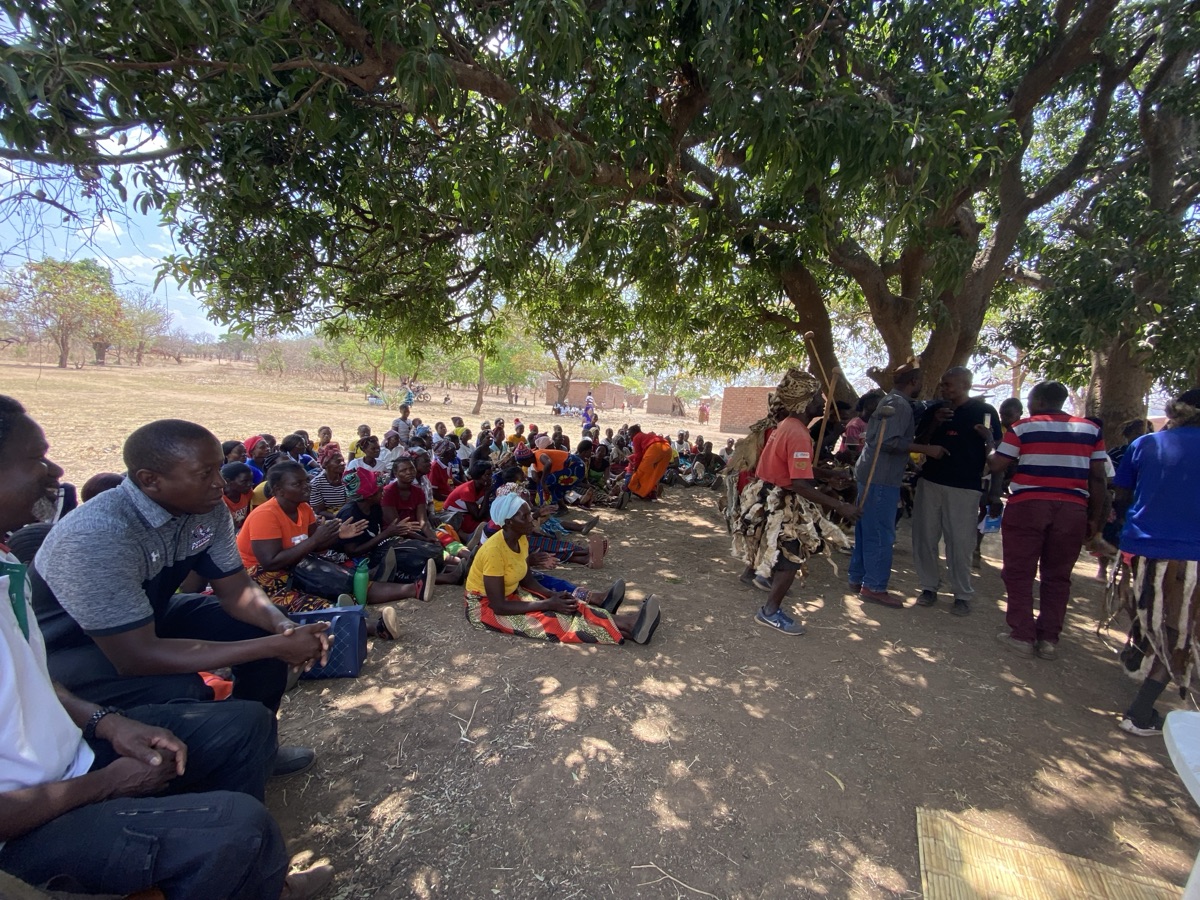
Organic farming
All of our programs are based on the universal principles of interdependence, mutual prosperity and universally shared values and focus on spiritual as well as social and sustainable economic development. Since the area where we work is mostly populated by farmers one of our focus points is on sustaibable farming methods. We work together with the Kasisi institute whom have much knowledge and experience with organic farming in Zambia.
Establishing our first organic garden


We received a beautiful piece of land from Chief Mishoro where in 2019 we built our training center and later in 2023 our guest house. It is quite a big place and we realized that is would also be a very good area to establish a model organic farm. So when I arrived at the late autumn of 2023 together with the local team and young people from the surrounding villages we started doing the landscaping to establish our organic garden / small farm. The design of the garden is based the principles of harmony as well as design ideas of permaculture. It took a lot of effort and hard work to make the soil fit for our first crop. Without the local youth and the support of Pastor Jere we could not have managed!

Pastor Jere watering the first crop

Pastor Jere planting potatoes. Every 'station' receives its own portion of compost
Key Principles of organic farming and our approach
One of the key principles of organic farming is that we work in harmony with nature. Therefore we need to take good care of the soil which is truly a miracle of creation. It contains billions of bacteria, insects, worms, mollusks and minute fungal filaments. All these organisms depend on each other and form together a life giving interconnected web. Plants work together with these organisms to receive their nutrients from the soil. The goal is not only to keep the soil healthy and replenish the nutrients that were taken from it by the crops, but also to continuously improve it, while respecting the life and delicate lifeforms in it. This is done by adding compost which is full of life and nutrients. Just as in the soil the nutrients are biologically bound to it. So feeding the plants is done indirectly through the life giving web of the soil. Improving the soil in other ways is recommended but only while protecting and respecting its life.
In Western agriculture high concentrations of fertilizer is used to feed the plants directly. Because of the high concentrations the life in the soil over time is destroyed and much of the fertilizer is washed out poluting the environment. Also because of the lack biodiversity crops become vulnerable for diseases and pests and therefore pesticides and other chemicals are used that further destroy the life in the soil and the surrounding environment.
Therefore we want to help farmers step by step to transition to organic farming. We start on a small scale by establishing gardens first so we gain experience and learn to understand the local situation. The first garden on our own grounds also serves as a training center and example for our local communities. From there we will establish gardens in the surrounding villages such as Gundani village where the garden was established in the spring of 2024

Handover of trees for the new organic garden in Gundani village

Garden in Gundani village. Much work was done. The main challenge is the lack of rain this year
In short: By protecting and improving the soil and the life in the soil, the yield will continue to improve, and farming will be sustainable.
- That what was taken from the soil must be given back using natural compost, green manure, intercropping etc. (circularity)
- Compost not only resupplies the soil, but it also infuses it with new life
- The resupply circle must be closed as local as possible
- The life in soil must be protected (from direct sunlight and harsh rains) through mulching. This also helps preserve the water in the soil
- No chemical fertilizer and other harmful substances should be used that kill the life in the soil.

Creating compost at our organic farm in Mishoro village

Preparing the soil for the crops. Contourlines to prevent erosion are clearly visible
The finished garden in Mishoro Village

After much work and support from the local community we finished the first garden which now also serves as a training institute







